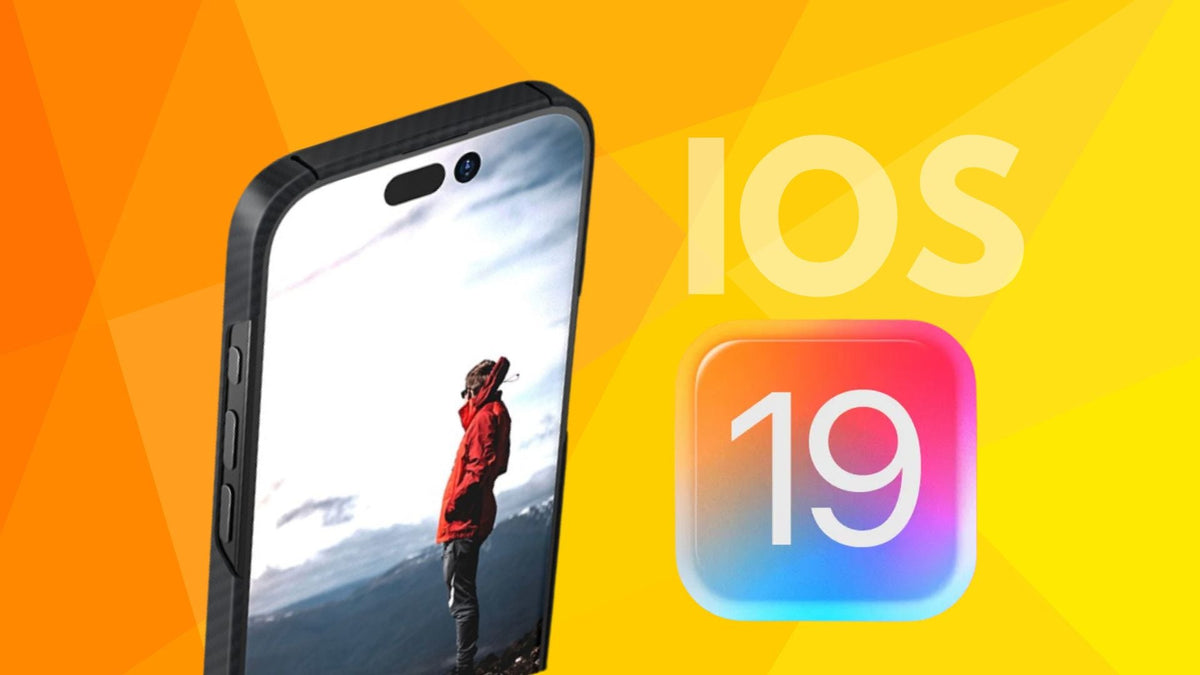
iPhone 17 AI Battery Improvements in iOS 19: More Than Just a Nice-to-Have
|
|
Lesezeit 5 min
Hast du ein Konto?
Logge dich ein, damit es beim Checkout schneller geht.
|
|
Lesezeit 5 min
Apple’s upcoming iOS 19 update promises big things, but one feature stands out for users eyeing the new iPhone 17 lineup: AI-powered battery optimization.
More than just a background upgrade, this intelligent power management system could make or break the user experience.
This is especially a redeeming factor for the rumored ultra-slim iPhone 17 Air, which may feature a smaller 2800mAh battery. If you’re planning to buy one, choosing a lightweight iPhone 17 Air case will be just as important to preserve the device’s portability and efficiency.
In this blog post, let’s break down how iOS 19’s AI battery management works, what it means for the iPhone 17 series, and why it’s a feature users shouldn’t overlook.
Rumors suggest that the iPhone 17 Air will feature a much slimmer design, potentially reducing the battery capacity to around 2800mAh. That’s a noticeable drop from the ~3200mAh seen in previous base models.

In a world where consumers expect all-day battery life with demanding apps, high-refresh displays, and constant connectivity, a smaller battery could be a major drawback, unless something compensates for it.
Thankfully, Apple saves the day with an iOS 19 update, which could “transform Apple battery life with AI,” Newsweek wrote.
iOS 19 introduces a new AI-based system that learns your usage patterns and dynamically adjusts power consumption. Apparently, here’s what it can do:
Learns app usage
Limits background activity
Predicts charging needs
On-device processing
In real-life use, this means:
If you always check social media after work, iOS will prioritize those apps around that time and deprioritize them when they’re idle.
Apps that run in the background unnecessarily get flagged and have their power draw reduced.
It can optimize power usage when it senses you won’t be near a charger soon.
All learning and adjustments happen on the device itself, maintaining privacy.
This isn’t the first time AI has been used for battery saving. Google has had Adaptive Battery since Android Pie (9.0) , but Apple’s integration is built to feel invisible and seamless.
A smaller battery usually means compromises. But iOS 19’s AI feature aims to reduce or eliminate those. We’ll explain how this is possible.
With a 2800mAh battery, you’d expect less screen-on time. But by using AI to selectively slow down or shut off background processes, iPhone 17 Air could still last a full day for typical users.
Users often switch on Low Power Mode manually or monitor battery-draining apps. iOS 19 could make that unnecessary by adapting in real time.
Because the iPhone 17 Air is expected to be ultra-light and slim, it’s clearly designed for portability. Smart battery management complements this by allowing users to go longer without plugging in.
The new charging indicator on the lock screen shows the estimated time to full charge. This helps users plan their usage better, especially when every percent counts.
💡Did You Know? With the rumored release of an iPhone 17 Air, the iPhone 16 Plus could be the last of its kind.
According to MacRumors and other tech news outlets, this is due to the "Plus" model experiencing lackluster sales and limited customer interest. The iPhone 17 lineup is expected to include an iPhone 17, an iPhone 17 Air, an iPhone 17 Pro, and an iPhone 17 Pro Max.
Unlike traditional power-saving modes that blanket-restrict performance or screen brightness, AI optimization is selective and smart. Let's look at the table below.

This means iOS 19 won’t just give you more screen time. It will do it without sacrificing performance or user experience.
Although the iPhone 17 Air benefits most due to its smaller battery, all compatible iPhones will gain from iOS 19:
Expect Apple to use this as a key marketing point, especially for battery-conscious consumers.
Scenario 1:
You stream music during commutes. Over time, iOS learns that your podcast app needs more juice during the morning hours and limits other background syncs.
Scenario 2:
You charge your phone overnight. iOS spaces out processes like updates and indexing to optimise night-time charging.
Scenario 3:
You travel frequently. iOS enters a more efficient state when it detects travel patterns, conserving battery when you’re away from outlets.
The iPhone 17 Air may come with a smaller battery, but thanks to iOS 19’s AI-powered battery management, it could still feel like a full-featured, all-day phone. This feature goes beyond convenience, it’s fundamental to the iPhone 17 experience, especially for users who value portability and minimalism.
For anyone upgrading to the iPhone 17 series, this smart battery system isn’t just a minor perk. It’s a major reason to feel confident about going smaller without settling for less.
And if by chance you choose to give iPhone 17 Air a chance this fall, don't forget to pair it with an ultra-thin iPhone 17 Air case for the best experience.
Yes, the AI-powered battery optimization features in iOS 19 will be available on older iPhones that are compatible with the update, including the iPhone 14 and iPhone SE (3rd generation). This means the battery management tools will be available to all iPhones running iOS 19, not just the iPhone 17.
As of now, Apple hasn’t confirmed if the AI system can be toggled off. However, similar features in iOS are usually managed in Settings under Battery or Performance.
Not directly. However, the charging behavior and temperature from MagSafe usage might be considered by the AI system when adjusting battery health settings.
No, but using a lightweight, super thin case can help with thermal efficiency, which in turn supports healthier battery performance, especially on a slimmer device like the iPhone 17 Air.
